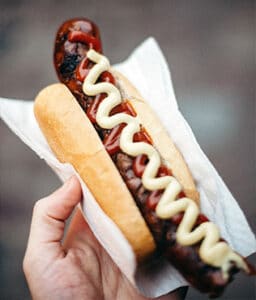Fasting or Intermittent fasting
In essence, fasting as one of the eating regimes is nothing new. People have long been fasting - taking longer breaks between meals - both simply for lack of food and for religious reasons.
Fasting - a miracle cure or another fashion diet?
Currently, fasting or interval fasting is presented as a miracle cure for weight loss, blood pressure, cholesterol and even inflammation, improving brain function, reducing the risk of oncological diseases, lowering blood sugar and even prolonging human life.
All this is based on scientific research and therefore seems plausible. Actually scientific research on interval fasting is highly controversial - mainly because different people ingested different amounts of food with different calories during the “food window” - it must be concluded that the positive effect of interval fasting has not been proven. Remember that being overweight is one of the most pressing issues of our century and marketing does not fall asleep - However, using only positive examples is, in my opinion, irresponsible.
So what exactly happens in our body during fasting?
Starting with about 12 hours of fasting ends with glycogen reserves in our muscles and liver. When glycogen reserves are depleted, the body begins to use other resources (including fat) for energy production, the amount of glucose in the blood drops about 20 times and ketones start to form, providing the body with the necessary energy as a "fuel". Fasting causes changes in our metabolism, intracellular processes and the production of hormones. Insulin sensitivity increases, blood pressure decreases, blood glucose levels fall and yes, fat stores also decrease.
But! In order for fasting to provide all these benefits, the intake of Kcal must be reduced by at least 20%. The problem is that it is not possible to follow such a diet (with 20% Kcal deficiency) for a long time - it means that there will definitely be a "break". And what will happen next? Read more about fast diets here.
The most popular fasting diets
Eating regime 16/8.
Every day 16 hours of starvation and 8 hours are allowed to eat anything they want. During fasting, you can drink water, sugar-free coffee and other zero-calorie drinks, which can help reduce hunger.
Eating mode 5: 2.
Eat 5 days a week as before, but limit your calorie intake to 500-600 Kcal for 2 days (500 calories for women and 600 calories for men).
Eating mode Eat / Do not eat.
24-hour fast once or twice a week. It is allowed to drink water, sugar-free coffee and other low-calorie drinks during fasting, but not other foods.
Eating regime Fasting every other day.
One day you eat normally, but the next you eat absolutely nothing, the next you eat, the next you don't eat and so on. There are different versions of this method. Some of them allow you to consume about 500 calories on fasting days. Only water, sugar-free coffee and other low-calorie drinks are allowed during fasting.
Eating regime Soldiers' diet.
Eat a small amount of raw fruits and vegetables during the day and one huge meal at night. That is, it is fasted all day and eaten once a night. This diet is quite similar to the paleo diet - mostly whole, unprocessed foods are eaten.
Eating Mode Skipping a spontaneous meal.
From time to time a meal is missed, essentially a periodic but spontaneous fast.
Potential risks
- Nutritional deficiency (do not confuse with caloric deficiency). By limiting your eating time, you are more likely to eat less and therefore take in fewer calories. But whether you take in all the nutrients your body needs depends not on how much you eat, but on what you eat.
- Slowing down your metabolism - when you start fasting, your body goes into a saving mode (learning to survive using fewer calories). When you start eating normally, you already need fewer calories and all the excess is stored in reserve - converted into fat.
- During fasting, drinking diarrhea increases fluid balance and the risk of dehydration.
- The diet is difficult to follow. All restrictive diets are associated with a 'risk of breakage', which makes the previous fasting period meaningless - in this case in particular. For example, for the 6/18 mode, the optimal eating window is between 8:00 and 14:00 - will you be able to eat only water, tea and coffee without sugar from 14:00 to sleep?
- For people with diabetes or low blood sugar, fasting can lead to rapid fluctuations in sugar levels, which in turn can be dangerous to their health.
The longer the fasting period, the more significant the risks to your health.
Who should not follow a fasting diet
- Pregnant women;
- New breastfeeding mothers;
- Growing children and adolescents;
- Patients with type 1 diabetes;
- All who have any diseases related to the digestive system;
- Everyone suffering from any kind of chronic disease;
- If you are taking medicines on a daily basis that should not be taken on an empty stomach;
- People with accelerated thyroid function (hyperthyroidism).
Do fastings work?
It should be understood that weight loss is only possible with a calorie deficit - if you eat more than you consume - the weight will increase, no matter what you do, when, what and how you eat.
Fasting, like any other diet, is geared towards lower calorie intake during the day - if you can't limit yourself otherwise - eat the 6 hours you want and you will almost certainly eat less during those 6 hours than before all day long.
Taking small doses of calories / nutrients throughout the day - just when you need them will definitely have a bigger effect, because the amount of Kcal you take in is easier to control and you will take in just as many calories, nutrients, minerals, enzymes as your body needs. wasted calories to be converted into fat), but if fasting as a method of limiting your intake of Kcal seems appealing to you, I would recommend a 6/18 weight loss regimen (eating between 8am and 2pm) that changes every other week with a weight-loss regimen. 8/16 (eating from 08:00 to 16:00). If the "eating window" is in the first half of the day, it is more likely that you will consume your intake of Kcal at bedtime, when your metabolism slows down and your energy consumption drops significantly. That is, there is less chance that there will be unspent calories that the body will turn into fat. And while fasting advertisers don't limit the amount of food they eat, I would still recommend avoiding snacks, sausages, and products that contain palm oil.
In addition to reading
Diets. Myths and Truth - Is Fasting an Effective Way to Lose Weight?

Help to maintain this site, create interesting articles and delicious low-calorie recipes!
Share this article
Follow me on Facebook
I recommend reading these articles as well

What is a healthy lifestyle
It is clear to everyone that a healthy lifestyle is better than an unhealthy one, but what exactly is a healthy lifestyle?

Multivitamins - do we need them?
Do multivitamins really help improve health, or are they just a waste of money?

An unhealthy diet shortens life more than smoking!
One in five of us dies prematurely because of our unhealthy eating habits.

The secret to health and fitness success
Why do some people succeed in getting fit and staying in good shape in the long term? What do they know or do differently? What do they do that other people don't seem to know?

